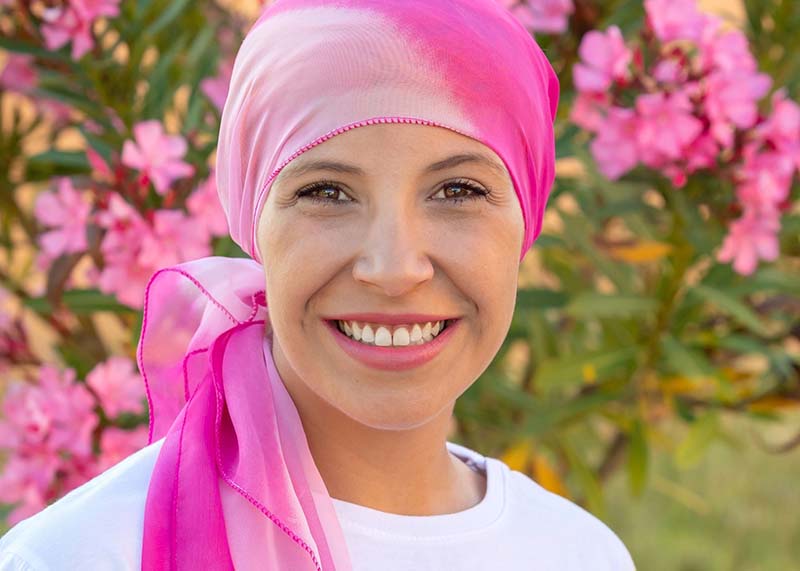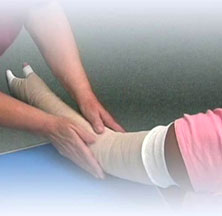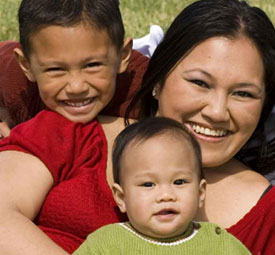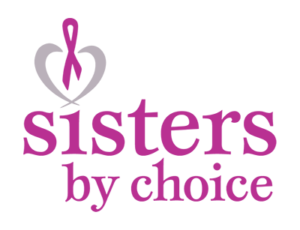Know what is normal for your breasts
Life After Treatment
“I’m finished with treatment…What's now?”
Being diagnosed with breast cancer affects every aspect of your life and just because you finished treatment doesn’t mean you will necessarily be able to jump right back to your normal routine. It is not uncommon for breast cancer survivors to experience a myriad of emotions after completing treatment. There are several quality of life issues that breast cancer patient have to deal with. The following are some common topics concerning life after treatment.

How will I be followed after treatment?
Your follow up after breast cancer may vary, but breast cancer survivors usually return to the doctor every 3 to 6 months during the first few years after treatment, then once or twice a year after that. At these visits, your doctor will look for side effects from treatment and check if your cancer has returned (recurred) or spread (metastasized). It is very important for you to go to your after treatment appointments.
Is it normal to have memory loss after treatment?
“Chemo brain” is not uncommon after treatment. People complain of trouble with concentration, memory, and multi-tasking. Symptoms may last one to two years after treatment or longer. Over time most people report that symptoms go away. Unfortunately, medications used to treatment can worsen the symptoms as well as stress, anxiety, and depression. At this time the effects on memory and concentration is not well understood and more research is necessary.
What can I do to minimize my risk of breast cancer returning?
- Cut down on how much alcohol you drink. Research shows that drinking alcohol increases your chances of getting certain types of cancers.
- Eat well. Healthy food choices and physical activity may help reduce the risk of cancer or recurrence.
- Exercise and stay active. Staying active after cancer can help lower the risk of recurrence and can lead to longer survival. Moderate exercise (walking, biking, swimming) for about 30 minutes
- Reduce anxiety and depression
- Improve mood and boost self-esteem
- Reduce fatigue
How do I cope with stress?
It is important not to forget about your emotional, psychological and spiritual health during and after treatment for breast cancer. Stress reduction plays an important part in getting through breast cancer treatment and your recovery.

- Things like meditation or relaxation may help you lower stress by quieting your mind. Try focusing on your breathing or repeating words or phrases to yourself.
- Try art, music, or dance as a creative outlet. This gives people the chance to express themselves in different ways and can serve as a great stress reliever.
- Exercise is a known way to reduce stress and feel less tense-whether you’ve had cancer or not. Exercise most days of the week, doing both weight-bearing and muscle strengthening activities
- Consider joining a support group. Telling and hearing stories about living with cancer can help people air their concerns, solve problems, and find meaning in what they’ve been through.
Will my arm (s) swell?

Lymphedema can occur after lymph nodes are removed at the time of surgery (mastectomy or lumpectomy). It can also occur after radiation. It is the collection of lymph fluid into the arm, chest, or fingers. This can lead to significant arm swelling. Unfortunately there is not cure for lymphedema but thankfully, most breast cancer patients do not experience lymphedema after surgery or radiation. Traditionally, an axillary node dissection was considered routine, now surgeons perform a sentinel node biopsy that removes fewer lymph nodes.
Factors Increasing Lymphedema:
- Having radiation to the axillary region
- Being overweight
- Having axillary surgery + radiation to the axillary region
- Having a significant amount of cancer in removed lymph nodes
If you experience ANY of the following, you should contact your doctor immediately:
- Swelling in the arm or hand (for example, you may notice a tighter fit of rings or watches)
- Feeling of tightness, heaviness or fullness in the arm or hand
- Feeling of tightness in the skin or a thickening of the skin
- Pain or redness in the arm or hand
Exercise, weight loss, compression devices, and physical therapy are the treatment therapies for lymphedema. For more information on lymphedema. Visit the National Lymphedema Network.
Is it normal to feel that your relationships have changed post diagnosis?

It is not unusual for your relationships with your family and friends to change after having a breast cancer diagnosis. It is normal to notice changes in the way you relate to your family, friends, and co-workers. There will be changes in the way they relate to you as well.
When treatment ends, your family, your friends, and other people who are around you may not be prepared for the fact that recovery takes time. In fact, many breast cancer survivors do not realize that recovery will take much longer than your treatment did. This may lead to frustration or disappointment for everyone involved. Relationships with family members and friends change permanently as a result of a breast cancer diagnosis.
Helpful Tips From The National Cancer Institute
- Let others know what you are able to do as you heal – and what not to expect. For example, don’t feel you must keep the house or yard in perfect order because you always did in the past.
- Give yourself time. You and your family may be able to adjust over time to the changes cancer brings. Just being open with each other can help ensure that each person’s needs are met.
- Help the children in your family understand that you were treated for cancer and that it may take a while for you to have the energy you used to have.
- Accept help. When friends or family offer to help, say yes, and have in mind some things that they could do to make your life easier.
- Keep up contacts during your recovery. It is natural for friends and co-workers to be concerned about you and to be curious about your treatment and your progress. If you can, you should communicate via email, text, on the phone with them. Also, a trusted friend or family member can do this for you. Your return to work or other activities will be easier for you and others if you stay in touch.
Exercise, weight loss, compression devices, and physical therapy are the treatment therapies for lymphedema. For more information on lymphedema. Visit the National Lymphedema Network.
When am I considered a survivor?
It is our opinion that the term “cancer survivor” includes anyone who has been diagnosed with cancer, from the time of diagnosis through the rest of his or her life. The word “survivor” helps many people think about embracing their lives beyond their illness. Family members, friends, and caregivers are also part of the survivorship experience.
I was diagnosed at a young age with breast cancer. Will I ever be able to have children?
Receiving treatment for breast cancer will have an impact on your fertility. The effects may be permanent or temporary. Women over the age of 40 are more likely to permanently lose their fertility because their fertility has already begun to decline. Unfortunately, though, there is no way to know in advance just how breast cancer treatment will affect your fertility.
Chemotherapy can impact fertility as well as the anti-estrogen medicine that may be given to you by your doctor. This is a hormone blocker that helps prevent breast cancer from developing again and is given for five years. This medicine may cause symptoms that are similar to menopause that include hot flashes and period cessation. It you are given this anti-estrogen medication, it is recommended that you do not get pregnant while taking this.
Although five years is a long time to put off having children, this is recommended because there is less chance of cancer returning the longer you wait. It is generally recommended that women wait at least two years before they start trying to conceive.

The American Cancer Society says, “Despite concerns that pregnancy could cause cancer to return, studies to date have not shown this to be true for any type of cancer.” Most breast cancer survivors who wish to have children after treatment worry about the pregnancy’s hormonal changes causing a recurrence. Studies have shown no difference in survival rates for women with or without post-treatment pregnancies. Speak with your health-care team about your concerns regarding your fertility before you begin treatment. Remember to NEVER discontinue any breast treatment without your doctor’s approval first. For more information visit the Fertile Hope initiative dedicated to providing reproductive information, support and hope to cancer patients and survivors whose medical treatments present the risk of infertility.
Breast Cancer Resources
- American Society of Breast Surgeons
- Am. Society of Plastics & Recon. Surgery
- American Cancer Society
- American Society of Clinical Oncology
- Centers Disease Control & Prev. (CDC)
- Dr. Susan Love Research Foundation
- East Georgia Cancer Coalition
- Know Your Breast Cancer
- Lynn Sage Cancer Research Center
- National Comp. Cancer Network (NCCN)
- National Cancer Institute (NCI)
- National Society of Genetic Counselors
- SHARE: Self-Help for Women with Breast and Ovarian Cancer
- Susan G. Komen
- Dr. Susan Love Research Foundation
- Triple Negative Breast Cancer Foundation
- Young Survival Coalition

